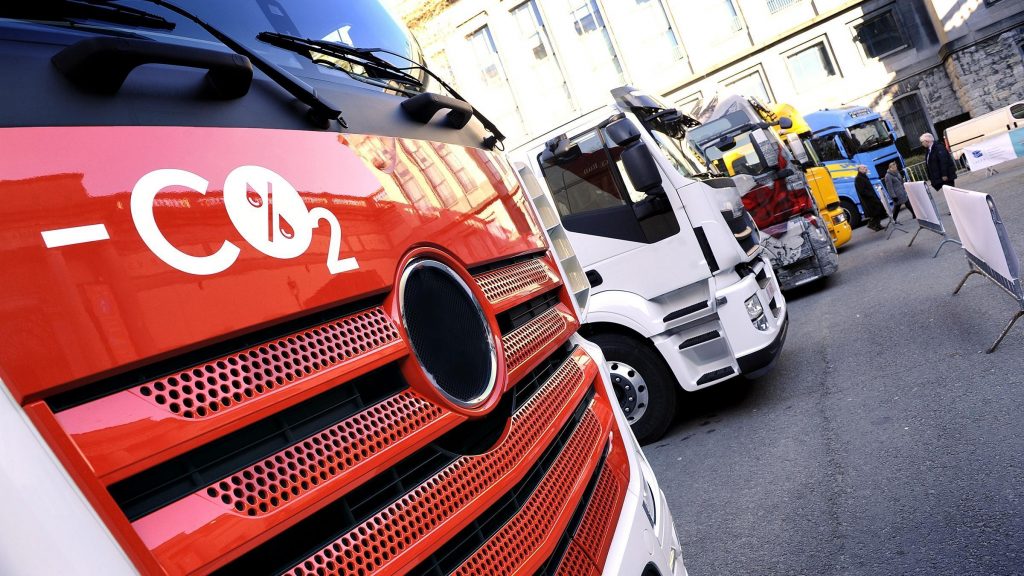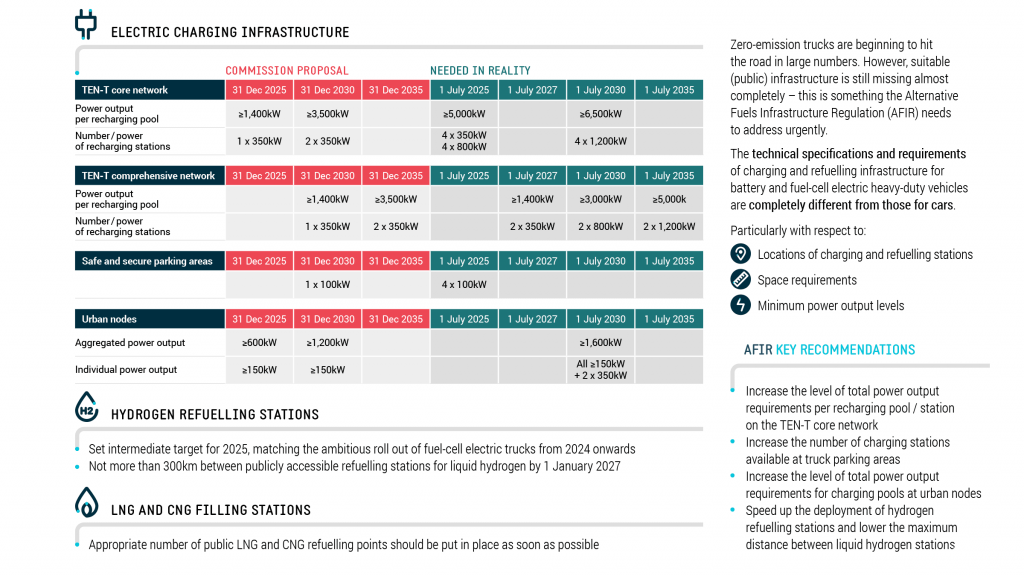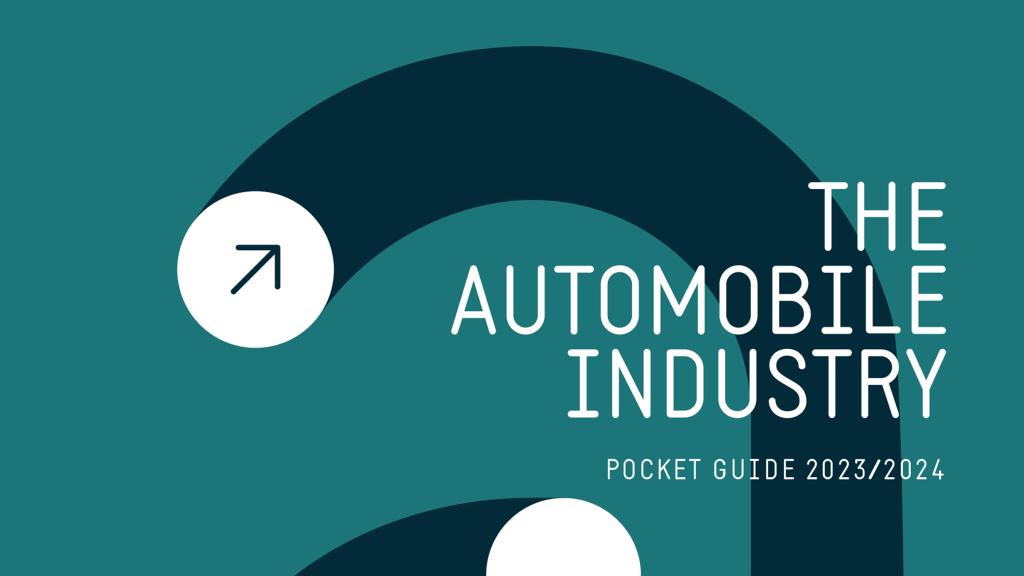Trucks and buses: EU agrees on most ambitious CO2-reduction targets globally

Brussels, 18 January 2024 – Law makers have reached a deal setting the most ambitious CO2 reduction targets for trucks and buses globally.
Truck and bus manufacturers fully support an ambitious decarbonisation agenda. However, the agreed implementation timeline remains extremely challenging in the absence of vital enabling conditions, stated the European Automobile Manufacturers’ Association (ACEA).
Taking note of today’s trilogue agreement, European truck and bus manufacturers emphasise that the highly ambitious CO2 reduction targets agreed today must be backed up by credible enabling conditions.
“Electric charging and hydrogen refilling infrastructure, comprehensive carbon pricing schemes, and meaningful support measures for transport operators to invest quickly: these are the key ingredients for rapidly decarbonising the heavy-duty transport sector, in addition to zero-emission vehicles,” emphasised Sigrid de Vries, ACEA Director General.
“We cannot continue boldly setting ambitious targets for vehicle manufacturers and expect swift and smooth implementation to follow. Without an enabling framework to shore up demand for the zero-emission models, achieving targets will be impossible, especially with the envisaged timeline,” de Vries explained.
To achieve targets by 2030, more than 400,000 battery-electric and hydrogen-powered vehicles will have to be on the road, and at least one-third of all new registrations must be zero-emission models. Europe needs at least 50,000 suitable charging stations (the majority being Megawatt Charging Systems) and at least 700 hydrogen refilling stations to make the equation work.
Decarbonising heavy-duty transport requires a collective effort from a diverse set of stakeholders across the transport ecosystem. “We are playing our part by investing and ramping up series production of zero-emission trucks and buses, but we rely on our customers’ ability to invest and operate new vehicles to replace older vehicles currently on Europe’s roads,” de Vries added.
The European auto industry is encouraged by the agreement for an earlier comprehensive review date (2027) than initially proposed by the Commission and to continue zero and low-emission vehicle (ZLEV) incentives until 2029.
Moving forward, the European auto industry will continue to closely monitor the uptake of crucial enabling conditions to ensure targets are met. The European Commission and member states must equally commit to monitoring progress to ensure expected shortcomings are addressed early to jointly deliver on the shared decarbonisation goal.
Notes for editors
- Trucks and buses are essential in getting goods and people to where it matters most. Trucks alone carry 77% of all goods transported by land in the EU, and more than half of public transport journeys are made by buses.
- For more information on the CO2 standards for heavy-duty vehicles, see our fact sheet here: https://www.acea.auto/fact/fact-sheet-co2-standards-for-heavy-duty-vehicles/
- You can also read our news article on the CO2 regulation’s implications for truck and bus manufacturers here: https://www.acea.auto/news/eu-co2-regulation-for-trucks-and-buses-vehicles-are-not-the-bottleneck-its-all-about-enabling-conditions/
Taking note of today’s trilogue agreement, European truck and bus manufacturers emphasise that the highly ambitious CO2 reduction targets agreed today must be backed up by credible enabling conditions.
About ACEA
- The European Automobile Manufacturers’ Association (ACEA) represents the 15 major Europe-based car, van, truck and bus makers: BMW Group, DAF Trucks, Daimler Truck, Ferrari, Ford of Europe, Honda Motor Europe, Hyundai Motor Europe, Iveco Group, JLR, Mercedes-Benz, Nissan, Renault Group, Toyota Motor Europe, Volkswagen Group, and Volvo Group
- Visit www.acea.auto for more information about ACEA, and follow us on http://www.twitter.com/ACEA_auto or http://www.linkedin.com/company/ACEA/
Contact:
- Cara McLaughlin, Communications Director, cm@acea.auto, +32 485 88 66 47
- Ben Kennard, Content Editor and Press Manager, bk@acea.auto, +32 485 88 66 44
About the EU automobile industry
- 12.9 million Europeans work in the automotive sector
- 8.3% of all manufacturing jobs in the EU
- €392.2 billion in tax revenue for European governments
- €101.9 billion trade surplus for the European Union
- Over 7% of EU GDP generated by the auto industry
- €59.1 billion in R&D spending annually, 31% of EU total


